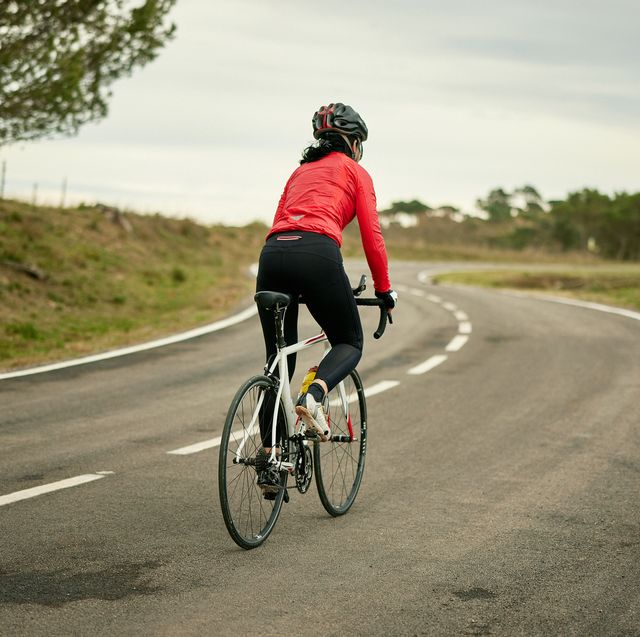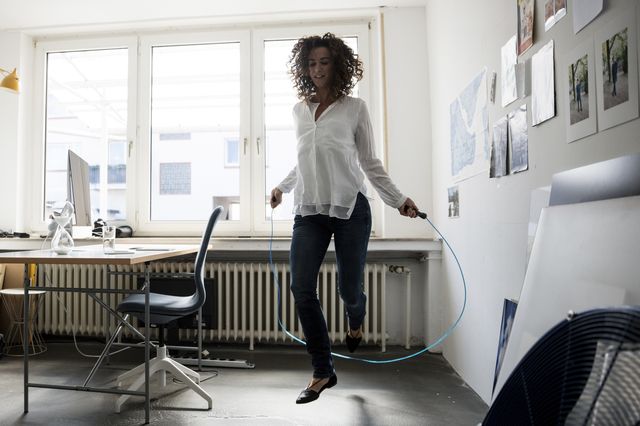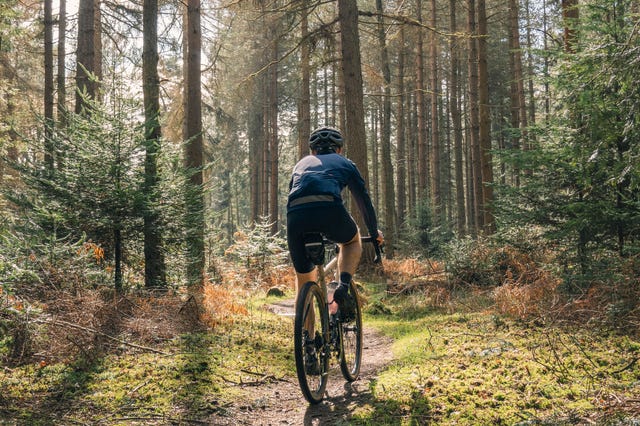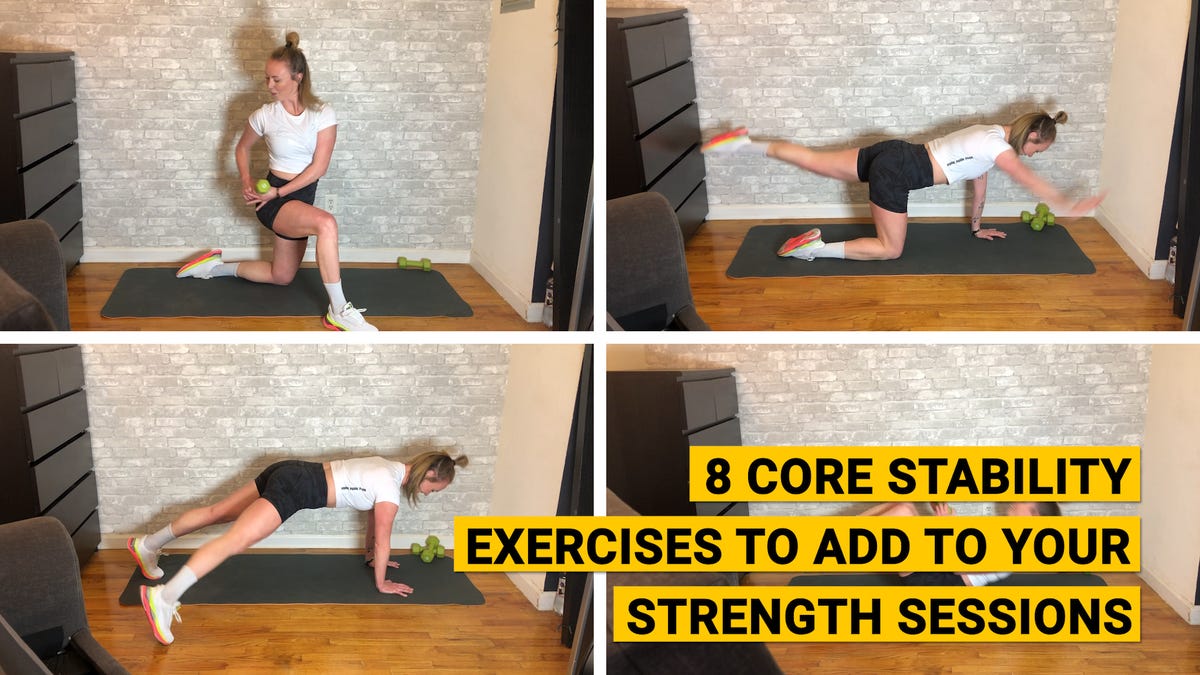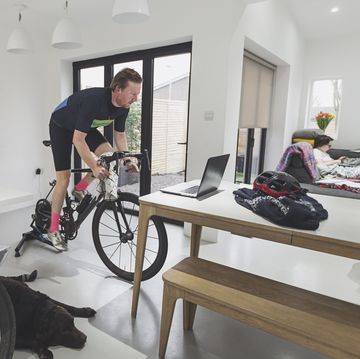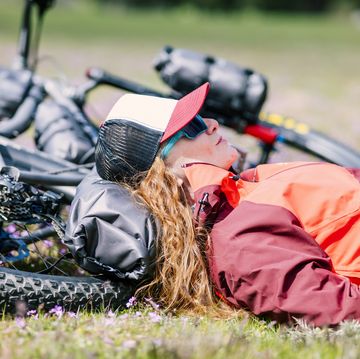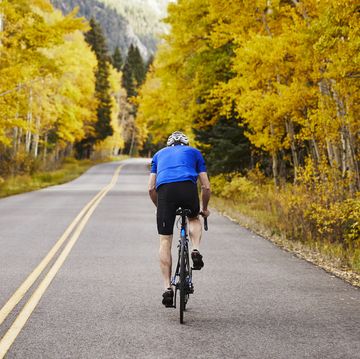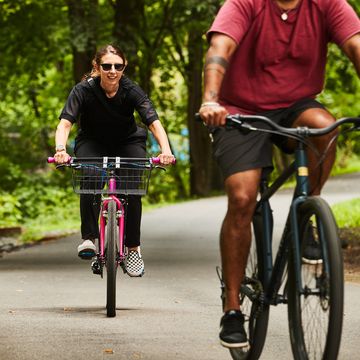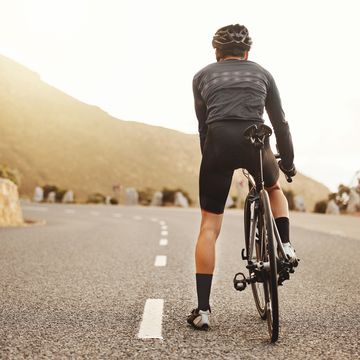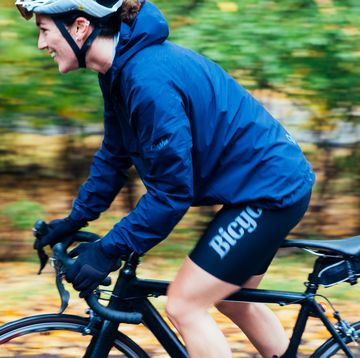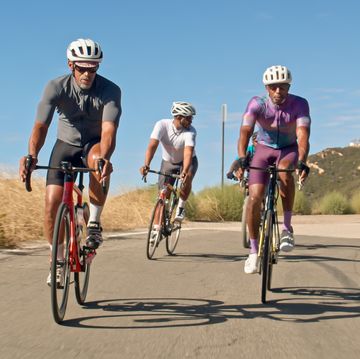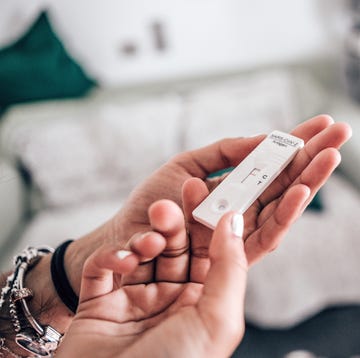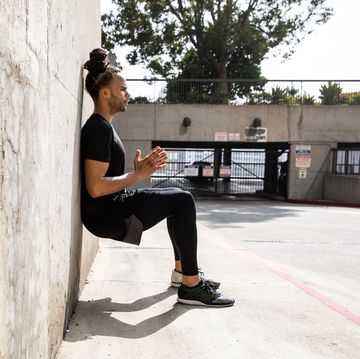- Cycling is actually more likely to help deepen your sleep and improve your sleep quality, according to a new research review.
- It’s best to get your vigorous-intensity exercise done early in the evening—sessions between 30 to 60 minutes were particularly helpful.
Maybe you’re not a “morning exercise” kind of person, so you’re considering a switch to evening rides instead. But will that mess with your sleep? According to a new research review in Sleep Medicine Reviews, cycling is actually more likely to help deepen your sleep and improve your sleep quality—but when you finish that ride matters.
Researchers looked at 15 studies to determine how a single session of intense exercise affects young and middle-aged people in the hours before bedtime. Separating data based on timing, they assessed the effects of exercise at more than two hours before sleep, less than two hours, and around two hours.
→ Get Bicycling All Access today to stay on top of the latest health and riding news!
They also factored in the sleep quality the participants got, as well as their fitness levels— including whether they were usually sedentary or exercised regularly. It turned out that exercise ending two hours before bedtime was ideal for helping people fall asleep faster and sleep deeper.
In terms of activity types, cycling proved to benefit participants most, and that was likely because it’s aerobic exercise, according to Melodee Mograss, Ph.D., a research associate at Concordia University’s Perform Sleep Lab.
“That type of exercise, such as cycling, has been found to be the most beneficial on sleep,” she told Bicycling. “However, that also depends on keeping a consistent exercise and sleep schedule, and following good sleep hygiene practices.”
In terms of why aerobic activity would have the most impact, Mograss added that one theory suggests it’s the way that exercise raises the core body temperature as you’re doing it, creating more efficiency with temperature regulation since your body will cool down to balance out that heat surge. It’s the same reason that warm baths before bed are often recommended—they help you cool down faster, and that preps you for falling asleep.
But when you exercise at a high intensity too close to bedtime, your body doesn’t have enough of an opportunity to wind down, Mograss said. That kind of disruption can be particularly difficult for “morning people,” the researchers added, and could lead to daytime sleepiness as a result.
The main takeaway, Mograss said, is to get your vigorous-intensity exercise done early in the evening—sessions between 30 to 60 minutes were particularly helpful—and stick with it so both your cycling and your sleep schedules are consistent.
Elizabeth Millard is a freelance writer focusing on health, wellness, fitness, and food.
